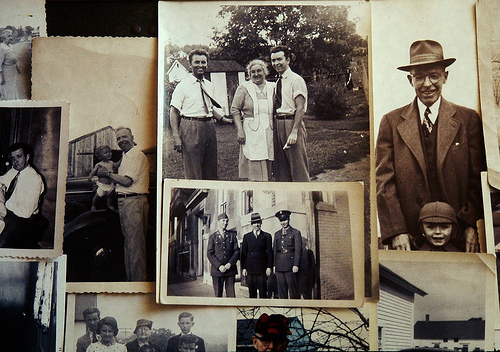University authorities—seeing the distraction that the Internet and social media can cause—are trying a varied of methods to get students to turn off their computers in class.
All Articles
“Individuals and businesses who are feeding a $700 million global market in offsets are often buying vague promises instead of the reductions in greenhouse gases they expect,” writes Doug Struck.
To promote greater transparency, Google is creating a tool to give people information about government requests for content removal and user data.
“No poet has ever been so influential, so controversial, and so little read” as Ezra Pound, writes Jamie James. After him, “anyone aspiring to be a poetic messiah would be shunned as a charlatan.”
The adoption of enhanced incentives for domestic enterprise in the Third World may help poor countries compete in the global marketplace, writes David Landes.
Several studies have concluded that obesity accelerates the process of dementia. People who are overweight in their 40s are more likely to show a rapid, pronounced decline in brain function in their 70s.
Nearly fifty years after the invention of the birth control pill, we now have a wide variety of options for contraception. Yet nearly half of pregnancies in the U.S. are still unintended.
Scientists have used DNA to trace the evolutionary split between head and body lice to 190,000 years ago. They say this may indicate how long humans have been wearing clothing.
I have good news and bad news on the JUNO front. The bad news is that my partner, Darcy James Argue, and Secret Society didn’t take home the statuette for […]
There’s no shame in making money. Making money is, after all, every company’s goal. And when our companies do well, that’s generally good for the country. Under normal circumstances Goldman […]
It’s the broadcast home of some of the most insipid timewasters on the web. So who would have ever thought that some videos posted on YouTube would ever aid a […]
When it comes to finding a successor for a top executive, an “inside outsider” might be the best option. As Harvard Business School Professor Joe Bower explains in his Big […]
Here at Mind Matters we strive to be your full-service source of octopus-cognition news. And in my last post on that, I described humans making videos for octopuses. So it’s […]
“If it’s any good, [literature] can make you feel less alone in the world...It gives you some late-night company with your memories and your sorrow.Literature does touch people; it’s not […]
A British bioethics council is asking the public whether it’s ethical to use financial incentives to encourage people to donate organs.
In a new book, Timothy Ryback examines Adolf Hitler’s private library. He asserts that books were important in shaping the Führer’s life, and looks for insights in the books’ margin notes.
While political debates might suggest that the question of climate change is yet unresolved, the world of industry and commerce is convinced that global warming is real, and imminent.
Big Think blogger Michio Kaku writes that a “perfect storm” of wind and ice conditions turned the Icelandic volcano eruption into a crisis. He gives three scenarios for what we can now expect.
Synthetic biologists have discovered new chemical reactions that could “rewire” plants to more efficiently process carbon dioxide—allowing crops to grow to enormous size.
“Right now, America has neither the opportunity nor frankly the balls to do truly big things on Arab-Israeli peacemaking,” writes Aaron David Miller.
Scientists have found a distinctive kind of breaking wave in the deep sea representing a subtle force that stirs the seabed and helps distribute rare nutrients.
“No matter where consumers buy books, their belief that electronic media should cost less—that something you can’t hold simply isn’t worth as much money—will exert a powerful force,” writes Ken Auletta.
“Although there must be a physical limit to how many memories we can store, it is extremely large. We don’t have to worry about running out of space in our lifetime,” writes Paul Reber.
One of the highest-impact lifestyle changes a person can make in the name of environmentalism is to go veggie. It takes – as this blog’s image illustrates – 698 and […]
A study has found that people who report having had “near-death experiences” also have elevated levels of carbon dioxide in their blood—indicating that oxygen deprivation may be the cause.
“A few snapshots.” According to novelist Tim O’Brien, that’s all our minds retain of our childhoods, adulthoods, and even the people we’ve loved most deeply. “And that’s memory? Little remnant […]
“It has been clear to me since the time of the commission that I led in the ’80’s, that no doubt the historic responsibility for where we are has to […]
As we push for better health care and longer lives, Gregory Rodriguez writes that we should think about the societal consequences of having so many old people hanging around.
Scientists have created an ultrathin, flexible, electronic implant that essentially melts into place on the brain’s surface, and may pave the way for a new generation of medical devices.
“Hummers are stupid and wasteful and if they go away because no one wants to buy one, that’ll be just a little sad,” writes Penn Jillette. “It’s always a little sad to lose some stupid.”








